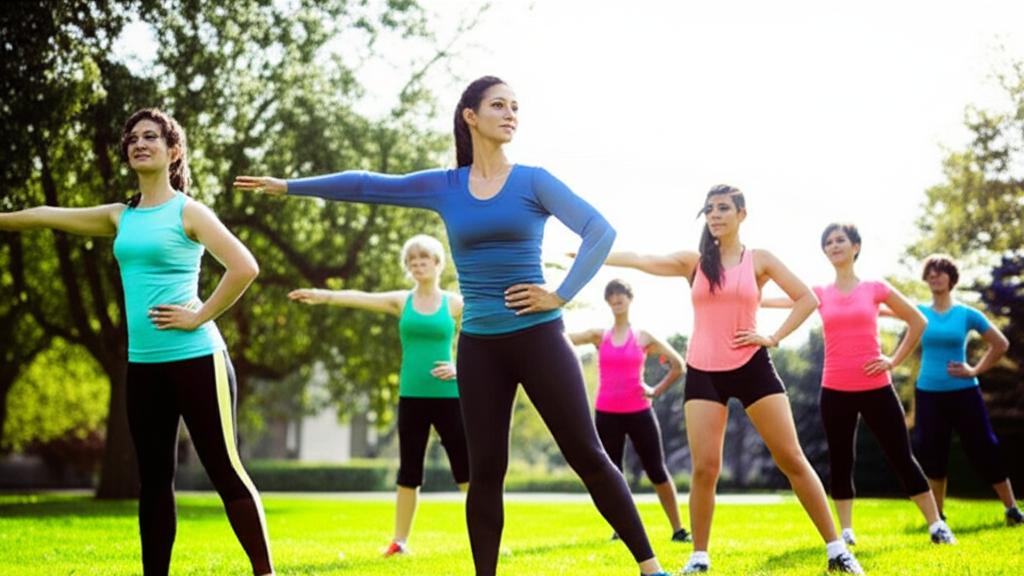Maintaining a balanced and healthy life involves more than just eating nutritious food or getting enough sleep—it also requires regular physical activity. Exercise is one of the most effective and natural ways to support physical, mental, and emotional well-being. In this article, we will explore the importance of regular exercise, its numerous health benefits, and practical tips to incorporate physical activity into your daily routine, even with a busy schedule.
Why Exercise Matters: The Foundation of a Healthy Lifestyle
Exercise is not just about weight management or physical appearance; it’s a powerful tool for improving every system in your body. From enhancing cardiovascular health to boosting mental clarity, the benefits of consistent movement cannot be overstated.
When you engage in physical activity, your body releases endorphins—natural mood lifters that help combat stress and anxiety. Regular exercise also improves blood circulation, strengthens your heart, enhances lung capacity, and supports muscle and joint function.
Physical Health Benefits of Regular Exercise
- Heart Health and Circulation
- Cardiovascular exercises like walking, jogging, swimming, or cycling can lower blood pressure, reduce bad cholesterol (LDL), and increase good cholesterol (HDL).
- This helps lower the risk of heart disease, stroke, and hypertension.
- Weight Management
- Exercise increases your metabolism and helps you burn calories more efficiently.
- When combined with a healthy diet, it plays a vital role in maintaining or losing weight.
- Muscle and Bone Strength
- Resistance training, such as weight lifting or bodyweight exercises, helps build lean muscle mass and improve bone density.
- This is particularly important as we age, reducing the risk of osteoporosis and falls.
- Improved Digestion
- Physical activity stimulates intestinal contractions, helping prevent constipation and supporting overall digestive health.
- Enhanced Immune Function
- Moderate, consistent exercise boosts immune system responses, making your body more resistant to infections.
Mental and Emotional Well-Being
- Stress Relief
- Exercise reduces levels of cortisol (the stress hormone) and increases production of serotonin and dopamine, chemicals associated with relaxation and happiness.
- Better Sleep
- Regular physical activity can help you fall asleep faster and deepen your sleep cycles, provided it’s not too close to bedtime.
- Mental Clarity and Focus
- Physical activity increases oxygen and nutrient flow to the brain, which improves cognitive functions like memory, concentration, and decision-making.
- Reduces Symptoms of Anxiety and Depression
- Studies show that exercise can be as effective as medication in managing mild to moderate depression and anxiety.
Exercise for All Ages and Abilities
No matter your age or physical condition, there is an appropriate form of exercise for everyone:
- Children and Adolescents: Activities like playing sports, biking, or dancing can help develop strong bones, muscles, and coordination.
- Adults: Regular aerobic and strength training routines help maintain energy levels, improve mood, and prevent chronic conditions.
- Older Adults: Gentle activities like walking, water aerobics, and yoga can enhance flexibility, mobility, and reduce the risk of falls.
How Much Exercise Do You Really Need?
According to the World Health Organization (WHO) and CDC:
- Adultsshould aim for at least 150 minutes of moderate aerobic activity or 75 minutes of vigorous activity per week, along with muscle-strengthening exercises on two or more days a week.
- Children and teensshould get at least 60 minutes of physical activity daily.
Tips to Stay Consistent with Your Fitness Routine
- Start Small
- Begin with short, manageable sessions, such as 10–15 minutes, and gradually increase duration and intensity.
- Choose Activities You Enjoy
- Whether it’s dancing, walking in nature, or cycling, doing what you enjoy makes it easier to stay consistent.
- Incorporate Movement into Your Daily Routine
- Take the stairs, stretch during breaks, or go for short walks after meals.
- Set Realistic Goals
- Setting clear and achievable goals helps track progress and stay motivated.
- Stay Accountable
- Join a fitness group, partner with a friend, or use a fitness app to track your efforts and maintain commitment.
Common Barriers and How to Overcome Them
- Lack of Time: Break your workout into shorter sessions throughout the day—three 10-minute walks still add up.
- Low Motivation: Keep workout clothes visible, create a playlist, or watch motivational content.
- Physical Limitations: Modify exercises or consult a physical therapist to find safe and effective routines.
Final Thoughts
Exercise is one of the simplest yet most impactful ways to enhance your health. By incorporating physical activity into your daily life, you’re investing in your long-term well-being. Start small, stay consistent, and listen to your body. The goal isn’t perfection—it’s progress and balance.
Make movement a part of your lifestyle, not a chore. Over time, the benefits of regular exercise will extend far beyond physical appearance, leading you toward a more balanced, energetic, and fulfilling life.






Pingback: Daily Wellness Habits for Glowing Skin and Better Health